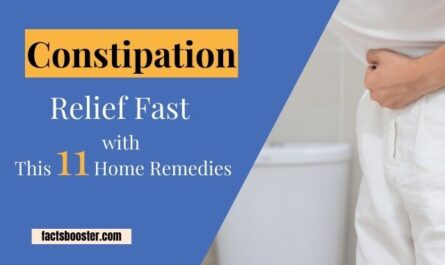Have you ever wondered, “I drink 2000ml of water every day—so why am I still constipated?” You’re not the only one. Many people believe that drinking lots of water should completely solve constipation, but the reality is far more complex. While water is essential for gut health, it’s only one part of the puzzle. Constipation involves many factors, and today we’ll dive deeper into this topic to uncover what you might be overlooking.

How Drinking Water Helps With Constipation?
Water plays a crucial role in maintaining gut health. It softens stools, making them easier to pass through the intestines and be eliminated. Water also stimulates bowel movements by aiding intestinal contractions, helping your body move and expel waste effectively.
When your body is dehydrated, the colon draws water from your stools, which makes them hard and dry—making it much harder to pass.
Most experts recommend drinking around 2000ml (2 liters) of water daily. However, this isn’t a one-size-fits-all rule. The amount of water you actually need depends on your body weight, age, climate, and daily activity level. For example, someone living in a hot climate or who is physically active will need more water than someone who sits for most of the day.
Also, just drinking water doesn’t guarantee it will be fully utilized by the body. Poor hydration habits can affect how well water is absorbed. Only when water is properly metabolized can it truly support healthy digestion.
Common Causes of Constipation
Besides hydration, here are several other common causes of constipation:
1. Lack of Dietary Fiber
There are two main types of fiber: soluble fiber and insoluble fiber. (1, 2)
- Soluble fiber absorbs water and forms a gel-like substance, softening the stool and making it easier to pass.
- Insoluble fiber adds bulk to the stool and helps it move through the intestines more quickly.
Both types of fiber work together to prevent and relieve constipation. Good sources include:
- Soluble fiber: oats, apples (with skin), kiwis, carrots, black beans, and red beans.
- Insoluble fiber: brown rice, whole wheat bread or flour, leafy greens (like spinach and kale), celery, and the skins of nuts and seeds (like almonds and sunflower seeds).
Important note: If you’re increasing fiber intake, make sure to also drink enough water—otherwise, your stool may become even drier and harder to pass.
2. Lack of Healthy Fats
Many people avoid fats out of fear of developing chronic diseases, choosing low-fat or bland diets. However, drastically cutting fat intake can lead to sluggish digestion. Healthy fats help “lubricate” the intestines, making it easier for stools to move through the colon.
Instead of cutting out fats, focus on healthy fats such as: olive oil, avocados, nuts, flaxseeds, and fatty fish.
A moderate daily intake of these fats not only supports bowel movements but also benefits the heart, brain, and blood vessels.
3. Lack of Physical Activity
Today’s sedentary lifestyle—sitting at a desk for 6–8 hours a day—is a major cause of constipation. Regular movement stimulates intestinal activity, helping waste move through the system. Without exercise, the intestines can become sluggish and allow stool to accumulate.
If you’re still asking, “Why am I constipated even though I drink 2000ml of water?”—ask yourself if you’re exercising regularly. The good news is, even light activity like walking can help. Just 15 minutes of brisk walking (around 2,000 steps) daily can get your digestive system moving. (3)
4. High Stress / Poor Emotional Health
Chronic stress, anxiety, or emotional distress can also lead to constipation. Your gut is often referred to as your “second brain” because of its close connection to the nervous system. When your brain is constantly stressed, it disrupts intestinal function and slows down gut movement.
Fast-paced lifestyles often come with overwhelming stress, which has led to an increasing number of younger people suffering from constipation. If you notice a connection between your mood and your bowel habits, consider taking care of your mental well-being. Activities like meditation, deep breathing, painting, playing music, or calligraphy can help ease your mind and indirectly support gut health.
5. Ignoring the Urge to Go
In the hustle and bustle of daily life, many people hold in the urge to go to the bathroom. Over time, this weakens the bowel’s sensitivity to these signals, leading to stool remaining in the body too long—making it hard and difficult to pass.
Try setting a fixed time each day for bowel movements—like after breakfast. Take a short walk, massage your abdomen, or do some light stretches without interruption. Over time, this can help you develop a regular morning bowel habit. Most importantly, never ignore the urge to go—listen to your body and act promptly.
How to Drink Water the Right Way
Drinking more water doesn’t automatically relieve constipation—it also depends on how you drink it. Chugging large amounts at once doesn’t allow your body to absorb it properly and may even burden your kidneys.
Tips for effective hydration:
- Drink small amounts throughout the day instead of all at once—this allows for better absorption and keeps your intestines moist.
- Start your day with a glass of water to activate your natural bowel reflex.
- Avoid drinking large amounts immediately after meals, as it can dilute stomach acid and impair digestion—ultimately affecting gut health.
- Choose warm water over cold, since cold water can cause intestinal contractions and slow digestion. Warm water is gentler and helps with circulation and bowel movement.
- Be mindful of coffee, strong tea, and sugary drinks—these can act as diuretics and increase water loss, worsening constipation. If you drink a cup of coffee, balance it with two cups of water.
Final Thoughts
“I drink 2000ml of water a day, so why am I still constipated?” It’s a frustrating issue that many people, myself included, have faced. Remember—drinking water is just the foundation, not the complete solution. To truly relieve constipation, you also need to adjust your diet and lifestyle: eat more fiber, include healthy fats, and stay active every day.
Most importantly, be consistent and patient. Long-lasting relief only comes with long-term effort. Keep at it—you’ve got this!


